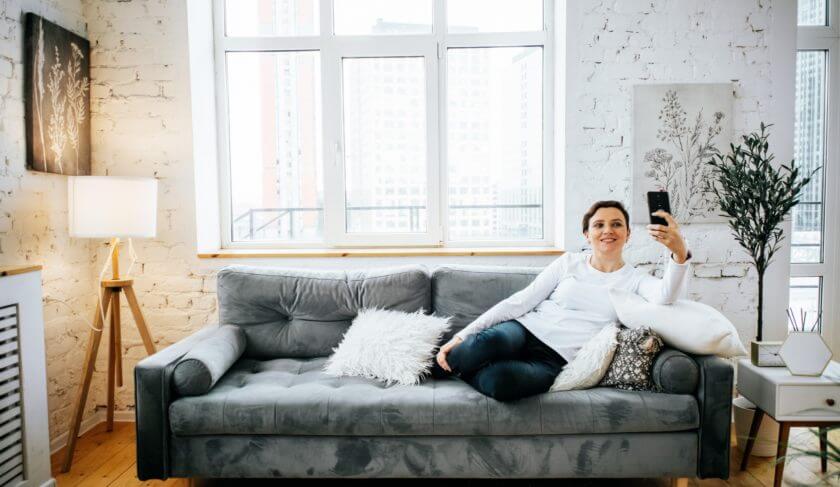
Renting your first apartment is an exciting milestone in your life! You finally have your own space to decorate and enjoy, and time away from mom and dad. Although you should definitely embrace your newfound freedom, you should also keep a watchful eye on costs during this time. While independence is a wonderful thing, it’s not cheap. Here’s a rundown on some of our favorite financial tips for being a first-time renter.
1. Consider Moving Expenses
To get your furniture to your new apartment, you may need to rent a moving truck. The average rental cost for a moving truck is around $130 for a local move, but can be much more expensive in larger cities. And if you’re moving out of a state, or if you have more furniture than a one-bedroom apartment, you may require professional movers’ assistance.
Also, keep in mind the costs for any new furniture you may purchase. To save money, consider asking your friends and family for second-hand items, or checking your local thrift store for gently-loved items that can be purchased for under $20.
2. Keep Your Utility Bills In Mind
Before moving in, call your utilities provider for your new address and get the utilities set up under your name. Also, check to see how your utility bills will be handled. In some buildings, some or all of your electricity costs may be lumped into what you pay each month in rent. Make sure you understand everything about your bills for electricity, power, water and gas so you can budget accordingly. And although your electricity will will likely be your most expensive utility, keep an eye out for your water and gas bills, too. The average water bill is about $39 per month and the average price for heating is $65 per year. Also, keep in mind your bill will increase in the winter when you crank up the heat… which means it should definitely get a line item on your budget, too.
There are multiple ways to cut down on your electricity costs, such as adjusting your thermostat up or down depending on the time of year (and come on, you don’t really mind throwing on a tank top or sweater, do you?), using energy-efficient lighting, and turning off lights, fans and other power-hungry appliances when you’re not using them.
3. Budget for Cable, Internet And Phone
Have mom and dad been paying for your cable, internet and cell phone bills for, well, forever? Lucky you. But now that you’re on your own, that’s about to change. Whenever you’re budgeting for your first apartment, these costs should be factored in. Thankfully, you can usually use the same provider for both cable and internet, and many companies have mobile apps that can help you manage your bill more efficiently. To cut down on these costs, consider using streaming platforms, such as Netflix. Even if you get rid of cable, having the internet is essential to keep up with work and entertainment. The average person spends around $57 per year on internet expenses.
When it comes to your cell phone bill, it’s time to set up auto-pay so you’ll never miss a payment. Our phones are an extension of ourselves and how we keep up with our friends and family. After all, you want to be able to have those weekly check-ins with mom and dad, right?… Right?
4. Invest in Renters Insurance
Maybe this was something you heard your dad mention on your way out the door, but you really, really really need renter’s insurance. It covers costs to repair or replace lost or damaged property due to theft, fires, natural disasters and so much more. It also provides coverage if an accident occurs at your residence. The cost for renter’s insurance varies, but you shouldn’t pay more than around $20 per month.
5. Set Aside Money for Groceries and Food
Food was likely also another thing your parents foot the bill for while you were living under their roof… But with great independence comes the great responsibility of buying your own groceries. But we promise, this can be fun! Meal prep and meal planning can actually be a blast. And of course, you’ll be eating out often, too. To build a budget, consider how often you grocery shop versus how often you eat out. The average person spends around $165 per month on groceries. To help lower this cost, try planning out your meals ahead of time.
Have More Questions About Money? Learn More Here:
- 5 Long-Term Money Goals You Can Meet By 2030
- Moving? Here’s How to Keep It Budget-Friendly
- Five Things You Can Do In One Hour to Feel Financially Prepared
SUBSCRIBE: Own your money, own your life. Subscribe to HerMoney to get the latest money news and tips!







